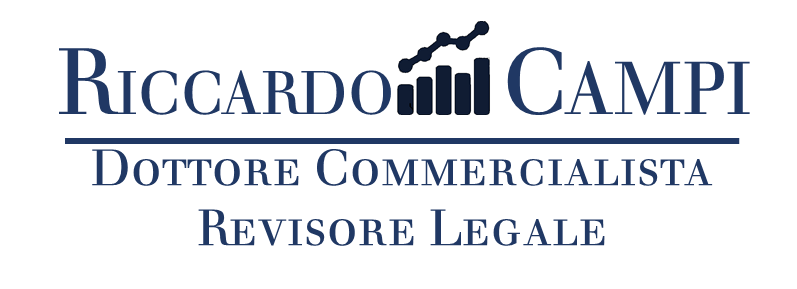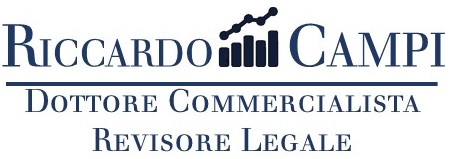Fondazione OIC
OIC
Organismo Italiano Contabilità-
Programma – OIC, EFRAG, Assonime e Università Luiss Guido Carli joint outreach event “Il reporting di sostenibilità volontario delle Sme: lo standard EFRAG e le richieste informative di banche e grandi imprese“
OIC, EFRAG, Assonime e Università Luiss Guido Carli invitano al joint outreach event “Il reporting di sostenibilità volontario delle Sme: lo standard EFRAG e le richieste informative di banche e grandi imprese”. L’evento si terrà il 10 maggio 2024, dalle 09:30 alle 13:00 a Roma presso il Luiss Campus in Viale Romania, 32. L’evento è […]
-
OIC pubblica in consultazione la bozza del Principio contabile OIC 5 – Bilanci di Liquidazione
L’OIC pubblica in consultazione la bozza del Principio contabile OIC 5 – Bilanci di Liquidazione. La necessità di aggiornamento del principio nasce dalle criticità riscontrate dagli operatori nell’applicazione delle disposizioni attualmente in vigore. Nell’attuale OIC 5 la finalità del bilancio di liquidazione è fornire informazioni prognostiche sull’esito della liquidazione, ossia se ci sono sufficienti flussi […]
-
Webinar VSME: lo standard volontario EFRAG per la rendicontazione di sostenibilità delle PMI – sfide, criticità e prime esperienze
Si informa che l’OIBR, in collaborazione con l’EFRAG, l’OIC e il CNDCEC, ha organizzato il webinar “VSME: lo standard volontario EFRAG per la rendicontazione di sostenibilità delle PMI – sfide, criticità e prime esperienze”. L’evento si terrà mercoledì 24 aprile 2024, dalle ore 17:00 alle 18:45. Si allega la locandina del webinar con il link per la […]
-
EFRAG&OIC joint outreach event sull’Exposure Draft dello IASB su Financial Instruments with Characteristics of Equity
In data 12 marzo 2024 presso la Torre PwC di Milano, si è tenuto l’EFRAG&OIC joint outreach event sull’Exposure Draft dello IASB “Financial Instruments with Characteristics of Equity”. All’evento sono intervenuti i rappresentanti dell’OIC, dell’EFRAG e dello IASB ed un panel di esperti che ha discusso le proposte dello IASB nel corso di una tavola […]
-
EFRAG&OIC joint outreach event sull’Exposure Draft dello IASB Financial Instruments with Characteristics of Equity
In data 12 marzo 2024 presso la Torre PwC di Milano, si è tenuto l’EFRAG&OIC joint outreach event sull’Exposure Draft dello IASB “Financial Instruments with Characteristics of Equity”. All’evento sono intervenuti i rappresentanti dell’OIC, dell’EFRAG e dello IASB ed un panel di esperti che ha discusso le proposte dello IASB nel corso di una tavola […]
-
Save the Date – OIC, EFRAG, Assonime e Università Luiss Guido Carli joint outreach “Il reporting di sostenibilità volontario delle Sme: lo standard EFRAG e le richieste informative di banche e grandi imprese”
OIC, EFRAG, Assonime e Università Luiss Guido Carli invitano al joint outreach event “Il reporting di sostenibilità volontario delle Sme: lo standard EFRAG e le richieste informative di banche e grandi imprese“. L’evento si terrà il 10 maggio 2024, dalle 09:30 alle 13:00 a Roma presso il Luiss Campus in Viale Romania, 32. L’evento è gratuito, si […]
-
IASB pubblica in consultazione l’Addendum all’ED Third edition of the IFRS for SMEs Accounting Standard
Lo IASB ha pubblicato in consultazione l’Addendum all’Exposure Draft Third edition of the IFRS for SMEs Accounting Standard, che integra l’exposure draft pubblicato a settembre 2022. Le proposte di modifica riflettono i miglioramenti apportati ai full IFRS. La consultazione termina il 31 luglio 2024.
- Commenti OIC su IASB ED Financial Instruments with Characteristics of Equity (Proposed amendments to IAS 32, IFRS 7 and IAS 1)
- Commenti OIC su EFRAG draft comment letter su IASB ED Financial Instruments with Characteristics of Equity (Proposed amendments to IAS 32, IFRS 7 and IAS 1)
-
Commenti OIC su EFRAG draft comment letter su IASB ED Financial Instruments with Characteristics of Equity (Proposed amendments to IAS 32, IFRS 7 and IAS 1)
Si pubblicano i commenti che l’OIC ha inviato all’EFRAG sulla draft comment letter su IASB ED Financial Instruments with Characteristics of Equity – Proposed amendments to IAS 32, IFRS 7 and IAS 1. Analoghe considerazioni sono state inviate anche allo IASB. Si allega il documento.
IFAC
-
Revisions to the Definitions of Listed Entity and Public Interest Entity in the Code
This Q&A publication is designed to highlight, illustrate, or explain aspects of the PIE revisions in the Code and is intended to complement the Basis for Conclusions for the final pronouncement. It will assist national standards setters, professional accountancy organizations, and firms in adopting and/or implementing the PIE revisions. The Q&As will also assist regulators and audit oversight bodies, the corporate governance community, investors, preparers, educational bodies or institutions, and other stakeholders in understanding the revised PIE definition and related provisions in the Code. Among other things, the PIE revisions:
- Include an expanded definition of a PIE by specifying a broader list of PIE categories, including a new category “publicly traded entity” to replace the category “listed entity.”
- Recognize the essential role local bodies responsible for the adoption of the Code play in delineating the specific entities that should be scoped in as PIEs in their jurisdictions, encouraging them to properly define the PIE categories in the expanded definition and adding any other categories relevant to their environments.
- Introduce a transparency requirement for firms to publicly disclose the application of independence requirements for PIEs where they have done so.
The PIE revisions are effective for audits of financial statements for periods beginning on or after December 15, 2024. Read the revisions here.
-
Briefing Note for Global Sustainability Roundtables
the IESBA will hold four global roundtables to obtain input that will help shape the development of new ethics and independence standards for sustainability reporting and assurance.
The objective of the IESBA’s global sustainability roundtables is to obtain stakeholders’ input to key ethics and independence issues relating to sustainability reporting and assurance as well as the related topic of the use of experts. Among other matters, participants will also be asked to exchange views on a number of strategic matters to help inform the IESBA’s deliberations regarding the scope and direction of its new standards.
The IESBA is looking to engage with a broad range of stakeholders, including investors and other users of sustainability information; those charged with governance; regulators and oversight bodies; preparers; national standard setters; sustainability assurance providers (both within and outside the accountancy profession); and academics.
The Briefing Note was prepared by the IESBA Staff as supporting materials for the roundtables.
The roundtables will be held in person at the following times and locations:
- Friday, March 24 - Paris, France
- Thursday, March 30 - Sydney, Australia
- Monday, April 3 - Singapore
- Thursday, April 6 - New York, USA
-
IFAC Response to the IFRS for SMEs Exposure Draft
IFAC welcomes this comprehensive review of IFRS for small- and medium-sized enterprises (SMEs). In principle, we support alignment of IFRS for SMEs with full IFRS Standards. As a basic standard-setting principle we believe the concepts that underpin IFRS and IFRS for SMEs should be the same, notwithstanding that their application may need to be modified to address user needs and capacity constraints of SMEs.
We generally agree with most of the proposals in the Exposure Draft and commend the IASB for considering the cost/benefit of each new or amended requirements from the perspective of SMEs and users of their financial statements. We believe it is critical to maintain the concept of ‘undue cost or effort’ and related exemptions as this is part of the foundation on which IFRS for SMEs has been developed and is a contributing reason why it is attractive to SMEs across the world.

